Planning worship?
Check out our sister site, ZeteoSearch.org,
for 20+ additional resources related to your search.
- |
User Links
Person Results
‹ Return to hymnal
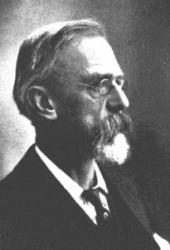
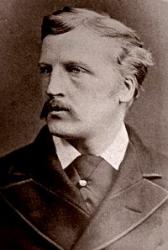
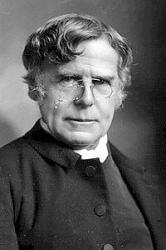
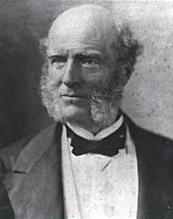

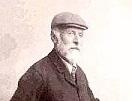
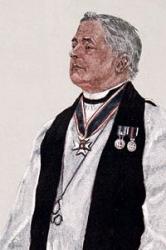
Export as CSV
G. F. Blanchard
1868 - 1926 Person Name: George F. Blanchard Hymnal Number: 1 Composer of "LEST WE FORGET" in For God and Country George Frederic Blanchard was born about May 1868 in the Hoxne district of Norfolk, England.
He died on May 9, 1926 in Weston-super-Mare, Somerset, England.
G. F. Blanchard
William S. Bambridge

1842 - 1923 Hymnal Number: 20 Composer of "ST. ASAPH" in For God and Country
William S. Bambridge
John Douglas Sutherland Campbell, Duke of Argyll

1845 - 1914 Person Name: John, Duke of Argyll Hymnal Number: 29 Author of "Trust" in For God and Country John George Henry Douglas Sutherland Campbell LLD [Duke of Argyll] United Kingdom 1845-1914. Born in London to George Campbell, Marques of Lorne, and styled Earl of Campbell from birth, he assumed his father's title at the age of 21 months, when his father became 8th Duke of Argyll. He bore that title until age 54. Educated at Edinburgh, Eton College, St. Andrews and at Trinity College, Cambridge, he also went to the National Art Training School. He traveled widely for 10 years throughout North and Central America, writing literature and poetry. In the UK, from 1868, he represented the constituency of Argyllshire as a Liberal member of Parliament in the House of Commons. He made little impression there. He was appointed Lt. Col. Commandant of the 1st Argyll & Bute Artillary Volunteers. He married Queen Victoria's 4th daughter, Princess Louise. They shared interest for art, but the marriage was childless and unhappy, and they spent much time apart.
At 33, he was appointed Governor General of Canada. He and Louise made many contributions to Canadian society, especially in the arts and sciences. They encouraged establishment of the Royal Society of Canada, the Royal Canadian Academy of Arts, and the National Gallery of Canada, even selecting some of its paintings. Campbell was also involved in completion of the Canadain Pacific Railway and a hospital in British Columbia. He and his wife held lavish parties while in Canada. In 1881, Louise returned to England, and the Lord also in 1883, when he published his memoirs of Canada and Scotland. He was Governor and Constable of Windsor Castle from 1892 to 1914. He died of pneumonia in 1914. He received 4 Knightings and 4 special honors for his accomplishments. Towns, buildings, streets and parks were named for him.
John Perry
John Douglas Sutherland Campbell, Duke of Argyll
John Stafford Smith
1750 - 1836 Hymnal Number: 2 Composer of "THE STAR-SPANGLED BANNER" in For God and Country
John Stafford Smith
William Boyd Carpenter

1841 - 1918 Person Name: Bishop William Boyd Carpenter Hymnal Number: 19 Author of "A Hymn for the Ware" in For God and Country William Boyd Carpenter KCVO (26 March 1841, Liverpool – 26 October 1918, Westminster) was a Church of England clergyman who became Bishop of Ripon and court chaplain to Queen Victoria.
William Boyd Carpenter was the second son of the Rev. Henry Carpenter of Liverpool, perpetual curate of St Michael's Church, Aigburth, who married (marriage license 1837 in Derry) Hester Boyd of Derry, sister of Archibald Boyd, Dean of Exeter. Her father was Archibald Boyd (born about 1764 of Saint Leonards, Shoreditch, London, England), who married Sarah Bodden there on 13 July 1789. Their eldest son was Archibald Boyd.
William Boyd Carpenter eventually fathered a total of 5 sons and 6 daughters. He married his first wife, Harriet Charlotte Peers, in 1864; she bore him 8 children. He married a second wife, Annie Maude Gardner, in 1883, who bore him three further children. The eldest Grandson, Francis was the father of Sir Henry Boyd-Carpenter KCVO (11 October 1939) Senior Partner of Farrer & Co,the Royal Solicitors. His second son William became Professor of Oriental Languages at Georgetown University, Washington DC. His grandson Michael (19 February 1932) was Senior Partner of Joseph Sebag & Co Stockbrokers. His fourth son, Archibald (26 March 1873 – 27 May 1937), was a Conservative MP and minister, as was Archibald's son the Lord Boyd-Carpenter (2 June 1908 – 11 July 1998). His children are Viscountess Hailsham. & Lieutenant General Sir Thomas Boyd-Carpenter.
Carpenter was educated at the Royal Institution, Liverpool, and St Catharine's College, Cambridge, and was appointed Hulsean lecturer at Cambridge in 1878. He held several curacies, was vicar of Christ Church, Lancaster Gate, from 1879 to 1884, canon of Windsor in 1882–84, and after 1884 Bishop of Ripon. In 1887 he was appointed Bampton lecturer at Oxford, and in 1895 pastoral lecturer on theology at Cambridge. In June 1901, he received an honorary doctorate of Divinity from the University of Glasgow.
In 1904 and 1913 he visited the United States and delivered the Noble lectures at Harvard. He was chaplain in ordinary to Queen Victoria, Edward VII, and George V. He resigned his see in 1911 on the grounds of ill-health and became a canon and sub-dean of Westminster. He was interested in eugenic issues and served as President of the Society for Psychical Research in 1912.
His publications include:
Commentary on Revelation (1879)
Permanent Elements of Religion (Bampton lectures, 1889)
Popular History of the Church of England (1900)
Witness to the Influence of Christ (1905)
Some Pages of my Life (1911)
Life's Tangled Thread (1912)
The Apology of Experience (1913)
--en.wikipedia.org/wiki/
William Boyd Carpenter
Herbert Stanley Oakeley
1830 - 1903 Person Name: Sir Herbert S. Oakeley Hymnal Number: 22 Composer of "DOMENICA" in For God and Country
Herbert Stanley Oakeley
Thomas Hughes

1822 - 1896 Hymnal Number: 18 Author of "O God of Truth" in For God and Country Hughes, Thomas, M.A., born at Donington Priory, near Newbury, Berks, Oct. 20, 1823, and educated at Rugby, and at Oriel College, Oxford (B.A. 1845), and called to the Bar, 1848. From 1865 to 1868 he was M.P. for Lambeth, and from 1868 to 1874 for Frome. Appointed a Queen's Counsel in 1869. He has published several popular works, including Tom Brown's School Days, 1856; The Scouring of the White Horse, 1858; Tom Brown at Oxford, 1861, and others. His hymn:—
"0 God of Truth whose Living Word," Truth, 9 stanzas of 4 lines, was given to the Hon. Mrs. Norton for insertion in Lays of the Sanctuary, 1859, p. 98, a collection published for a charitable purpose. It is a hymn of great force, and seems to gather up and embody the distinctive thoughts and feelings which have animated his life. It was probably suggested by Maurice's sermon on "The Word of God conquering by Sacrifice," in Doctrine of Sacrifice. It is usually given in an abridged form, as in the Society for Promoting Christian Knowledge Church Hymns, 1871 (6 stanzas), or W. G. Border's Congregational Hymns, 1884 (7 stanzas). He died in March, 1896. [Rev. W. Garrett Horder]
--John Julian, Dictionary of Hymnology (1907)
Thomas Hughes
Henry F. Chorley

1808 - 1872 Hymnal Number: 23 Author of "For a Righteous Peace" in For God and Country Chorley, Henry Fothergill, was born at Blackleyhurst, Lancashire, Dec. 15, 1808, and educated at the Royal Institution, Liverpool. In 1834 he was engaged as a member of the staff of the London Athenaeum. This connection he retained for 35 years. He died Feb. 15, 1872. He published some novels and a large number of songs.
--John Julian, Dictionary of Hymnology, Appendix, Part II (1907)
============
Born: December 15, 1808, Blackley Hurst, near Billinge, Lancashire, England.
Pseudonym: Paul Dell.
Died: February 16, 1872, London, England.
Buried: Brompton Cemetery, London, England.
Son of an iron worker and lock maker, Chorley moved with his family to Liverpool after his father’s death in 1816. He was educated by private tutors in Liverpool and at the school of the Royal Institution. His youth was shaped partly by time spent in the household of the wealthy and intellectual Mrs. Benson Rathbone of Green Bank, and he became a close friend of her son Benson, who died in an accident in 1834.
Chorley began writing for the London Athenæum in 1830, and was the paper’s music critic and literary reviewer until 1868. He also became music critic for the London Times and wrote, for these and other journals, reviews and musical gossip columns, discussing composers and performers in Britain and on the European continent. He was quite conservative, and was a persistent opponent of innovation, but was a lively chronicler of London life. In the Athenæum and elsewhere, Chorley often criticized the music of Schumann and Wagner for what he called "decadence." In 1850 and 1851, Chorley edited the Ladies’ Companion, which covered fashion and domestic women’s issues.
Chorley was also a journalist, novelist, playwright, and poet, and opera librettist. One of his best known pieces was his obituary of Turgenev, mistakenly written while the Russian was still very much alive. Turgenev was not offended by the error nearly as much as he was by the critical opinions of his work Chorley gave in the obituary.
Chorley was considered eccentric and abrasive, but was respected for his integrity and kindness. He enthusiastically gave and attended dinner parties, and cultivated friendships with Elizabeth Barrett, Felix Mendelssohn, Charles Dickens, Arthur Sullivan and Charles Santley. After the death of his brother, John Rutter Chorley (1806–1867), Henry inherited enough money to retire from the Athenæum, though he continued to contribute articles for that paper and for The Orchestra.
In spite of Chorley’s efforts to promote the music of Charles Gounod in England, the composer disliked Chorley intensely. When Gounod lived in England in the early 1870’s, he wrote a satirical piano piece intended to be a parody of Chorley’s personality. It greatly amused Gounod’s English patron, Georgina Weldon, who described Chorley as having a "thin, sour, high-pitched sopranish voice" and moving like a "stuffed red-haired monkey." Gounod intended to publish the piece with a dedication to Chorley, but died before this was possible. Weldon then invented a new program for the piece, which was re-titled Funeral March of a Marionette. It became popular as a concert piece, and in the 1950s, its opening phrases became well known as the theme music for the television program Alfred Hitchcock Presents.
Chorley’s works include:
Music and Manners in France and Germany, 1841
Pomfret, 1845
Roccabella, 1859
The Prodigy, 1866
--www.hymntime.com/tch/
Henry F. Chorley
Gerard Francis Cobb

1838 - 1904 Person Name: Gerard F. Cobb (1838-1904) Hymnal Number: 28 Composer of "LAUS TIBI, CHRISTE" in For God and Country Gerard Francis Cobb was born at Nettlestead (near Maidstone), Kent, on 15 October 1838, the youngest of five children of the Reverend William Francis Cobb (1795-1862) - the rector of Nettlestead - and his wife, Mary Blackburn. The five children were:- 1. Mary (1826-1906), 2. Clement Francis (1821-1896), 3. William Francis (1831-1916), 4. Francis (1834-1920), and 5. Gerard Francis (1838-1904). (The patronymic ‘Francis' occurs in several generations. Gerard's grandfather was Francis Cobb (1759-1831), a brewer and banker of Margate, whose sons were William Francis (Gerard's father), John Francis and Thomas Francis. Gerard's brother Clement also had a son Francis William (1872-1938). The parents were both musical, the mother being a pianist (and latterly organist at Nettlestead) and the father a ’cellist. Gerard early showed an aptitude for music and was able to pick out a tune on the piano while still a child, and without any formal instruction.
Gerard Francis Cobb was educated at Marlborough College from 1849 to 1857. (His brothers William and Clement were also educated there.) He was a bright pupil, reaching the Sixth Form in September 1854 (still aged 15) and winning several prizes - the Divinity Prize (Summer 1853), the Upper Fifth Prize (Summer 1854), the Lower Sixth Prize (Christmas 1854) and the English Essay Prize (1856). He was also appointed a College Prefect and (when he left school) donated a cup as an inter-house singing trophy. (Inter-house singing competitions continue to be popular at Marlborough to this day.) Two concert programmes from Marlborough College (Christmas 1854 and Christmas 1856) show his active involvement as singer, pianist and harmonium player, although in neither programme is there any indication of a composition by him.
From Marlborough Cobb went up to Trinity College, Cambridge, matriculating in 1857. He was elected a Scholar in 1860, and graduated B.A. in 1861 with a double first in the Classical and Moral Science Triposes. He then went to Dresden for a short time, to study music. While there, he perfected his knowledge of German, later providing English translations for three of the texts of his own Lieder und Gesang (1885); he was also proficient in French and Italian, as well as being an excellent classical scholar. (Cobb wrote the words of at least one of his own songs - "Reconciliation" (c.1891) - and inserted a verse of his own into another song - "Drawbacks" (1892), words by Henry S. Leigh.)
It may have been at this time that he decided not to make music his profession: he returned to Cambridge, where he spent the rest of his life. He was elected a Fellow of Trinity in 1863, proceeding M.A. in 1864, and in 1869 was appointed Junior Bursar of his college. This office, which he held for twenty-five years and in which he showed great business capacity, seems to have centered around the day-to-day running of the college, which included looking after the accommodation of some six hundred students (Trinity was the largest of all the Oxbridge colleges) and even making sure that the brewery horse had the correct number of nails in his shoes! (The college had a small brewery).
Cobb's interests were many and varied. There was music, of course, but (appropriately, as the son, brother and uncle of rectors) he was also much interested in Church matters: he was in sympathy with the Tractarian movement (associated with Newman, Pusey, Keble, Forbes and Froude) and at one time contemplated (but finally declined) holy orders. He actively advocated union between the Anglican and Roman communities, and published an elaborate treatise which caused a sensation in ecclesiastical circles. A second edition (with a sequel) followed and this, in turn, was followed by two short tracts. Even as late as the 1860s there was a form of religious intolerance which although not life-threatening (as in the reigns of earlier monarchs) nevertheless ensured that a career in the Church would no longer be an option for Cobb. His appointment at Trinity was timely, and his energies were then directed towards the running of the College and to the pursuit of music.
Cobb was a fine organist, and gave occasional recitals at Trinity. His writings include a history of the organ and an account of the choir which, apparently, he also trained. He was, too, the University’s representative on municipal affairs and produced pamphlets on rather more mundane matters than were normally dealt with in "the olive-grove of Academe".
When Cobb went up to Trinity in 1857 the Professor of Music was the recently appointed (1856) William Sterndale Bennett (1816-1875). Cobb enjoyed Bennett's friendship and was helpful to him in dealing with the Faculty of Music. In the last years of his life, Bennett made use of two bound octavo music note-books in which he jotted down sketches and ideas; these books had been brought to him from Germany by Cobb.
On Bennett's death, the Professorship passed to the blind George Macfarren (1813-1887). Cobb proved equally helpful to the new incumbent, particularly in the reform of the Faculty. He had been elected President of the Cambridge University Musical Society in 1874 and became Chairman of the University Board of Musical Studies in 1877, serving in that capacity for fifteen years.
Aside from his work at Trinity, and his musical, religious, and municipal interests, there is yet one more facet of this Victorian polymath which must command our attention. He was, perhaps surprisingly, a great lover of outdoor activities - swimming, walking, hill climbing, and - above all - cycling. He was one of the founders - and first President (1878) - of the National Cyclists' Union (originally the Bicycle Union) and was also President of the Cambridge University Cycling Club. For the International Health Exhibition (1884) he contributed a chapter on 'Cycling' to the handbook on athletics, part 11.
Cobb thought so much of cycling that his enthusiasm induced not only undergraduates but even many of the Dons to take to it (33). He celebrated his sixtieth birthday by undertaking a cycle run of sixty miles in company with one of his nephews. Cobb was not very tall and was almost equalled in height by his earlier high cycle, although in later years he rode what was then called a 'safety cycle' (which was smaller) and, eventually a 'free wheel bicycle'. (The cycle which features in the accompanying photograph is presumably a 'safety' or 'free wheel' machine.)
Little is known of Cobb's life outside Cambridge. His duties at Trinity would have kept him there for most of the year, and his dealings with his London publishers were probably conducted by letter. His name appears on the invitation lists of several of the Royal Society of Musicians' annual dinners in the 1880s and, although he did not attend any of these, he is recorded as having made several donations to the Society.
In 1893 Cobb married Elizabeth Lucy Parkinson, widow of Stephen Parkinson, Fellow and Tutor of St. John’s College, Cambridge, and (in accordance with the custom of the time) resigned his offices at Trinity. He continued to reside in Cambridge - at The Hermitage Silver Street - and devoted himself mainly to musical composition. From this last period of his life came the second (1893) and third (1897) sets of Barrack-Room Ballads (the first having appeared in 1892) and his delightful Twenty-four Songs for Little People (1897) to words by Norman Gale (d. 1942), as well as works on a larger canvas, including his most ambitious work - A Song of Trafalgar Op. 41, a Ballad for men's voices (solo and chorus) and orchestra (1900), to words by Edith Nesbit (1858-1924) - remembered today as the author of The Railway Children (1906).
Among Cobb's large-scale works is reputed to be a Symphony although no trace of this has yet come to light. What can be stated with certainty, however, is that on 27 November 1902 a concert was held at the Winter Gardens, Bournemouth, given by the Municipal Orchestra under the direction of Dan Godfrey, jun. - later Sir Dan Godfrey (1868-1939) - and Gerard Cobb, who conducted "For the first time in Bournemouth" (and probably the first time anywhere) three of his own works - Introduction and Allegro Giocoso in B flat, Valse Pathétique 'Niobe', and Romanza for Orchestra, in E flat (performed at a Prom in 1901); two of Cobb's earlier songs - "I wish to tune my quivering lyre" (written in 1868) and "Mount, Gallants all!" (published c.1890 were sung by Henry Corner. (An orchestral score and band parts for "Mount, Gallants all!" were available for hire from the publishers, and it must be assumed that both songs were given with orchestral accompaniment.)
Cobb's last-known compositions were three further settings of poems by Kipling - not from the Barrack-Room Ballads this time, but from a similar collection, Service Songs. The three songs. - "M.I." (Mounted Infantry of the Line), "The Married Man" (Reservist of the Line), and "Lichtenberg" (New South Wales Contingent) - had been commissioned by Charles Sheard, who had published his settings of the Barrack-Room Ballads and they were completed just a few days before his death. Sheard published them later that year.
Gerard Francis Cobb died at The Hermitage on 31 March 1904. having succumbed to an attack of pneumonia. He was cremated at Woking on 5 April at 12.00 noon, at which precise time a memorial service was held at Trinity College Chapel; the music was all by Cobb. His ashes were laid to rest on 8 April in the churchyard at Nettlestead, where his widow erected a handsome cross in his memory.
http://www.musicweb-international.com/classrev/2004/oct04
Gerard Francis Cobb
Frederick A. J. Hervey

1846 - 1910 Person Name: Rev. Frederick A. J. Hervey Hymnal Number: 17 Composer of "HERVEY'S LITANY" in For God and Country Born: May 18, 1846, Westminster, Middlesex, England.
Died: August 8, 1910, Norwich, England.
Buried: St. Mary Magdalene’s Church, Sandringham, Norfolk, England.
Son of Alfred, Lord Hervey, Frederick was educated at Marlborough and Trinity College, Cambridge (BA 1868, MA 1872). He was ordained a deacon in 1869, and priest in 1870. He served as Rector of Upton-Pyne, Devon (1876); Sandringham (1878-1907); Canon of Norwich (1897); and Domestic Chaplain to King Edward VII (1901).
--www.hymntime.com/tch/
Frederick A. J. Hervey


 My Starred Hymns
My Starred Hymns


